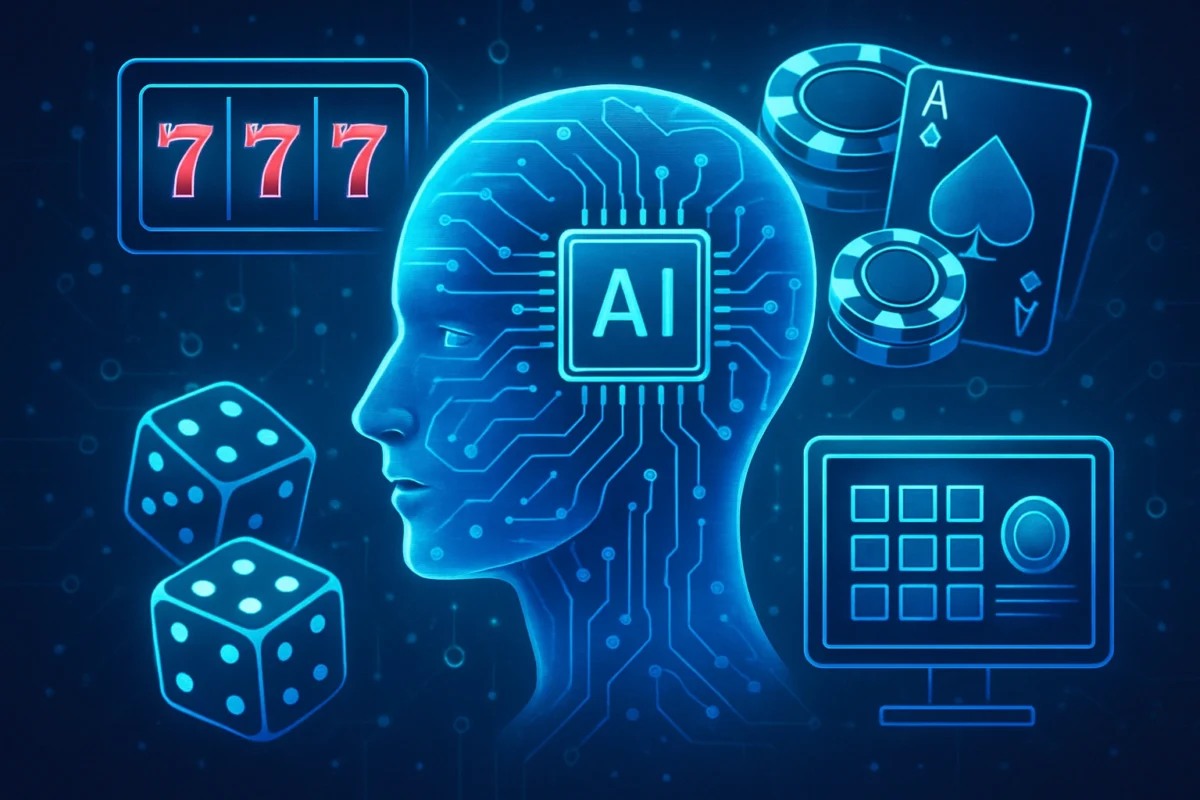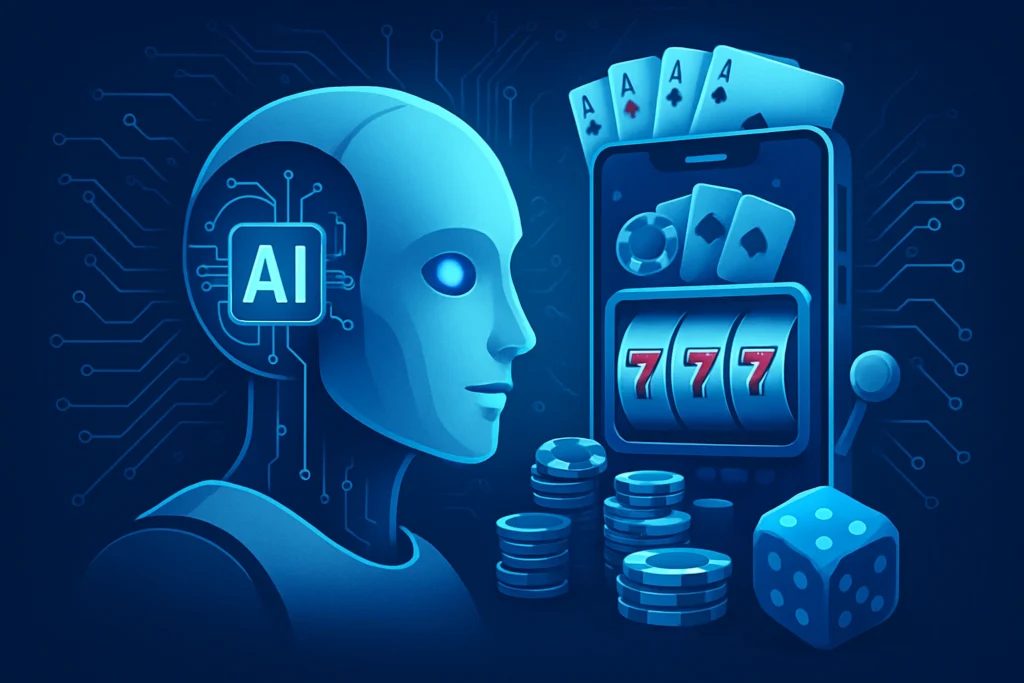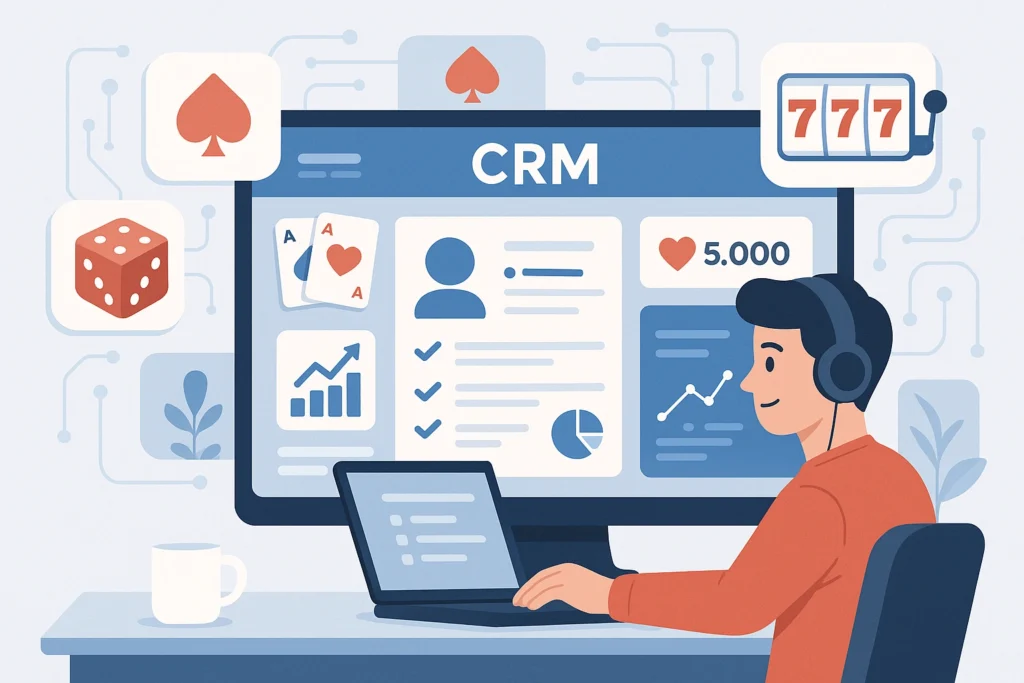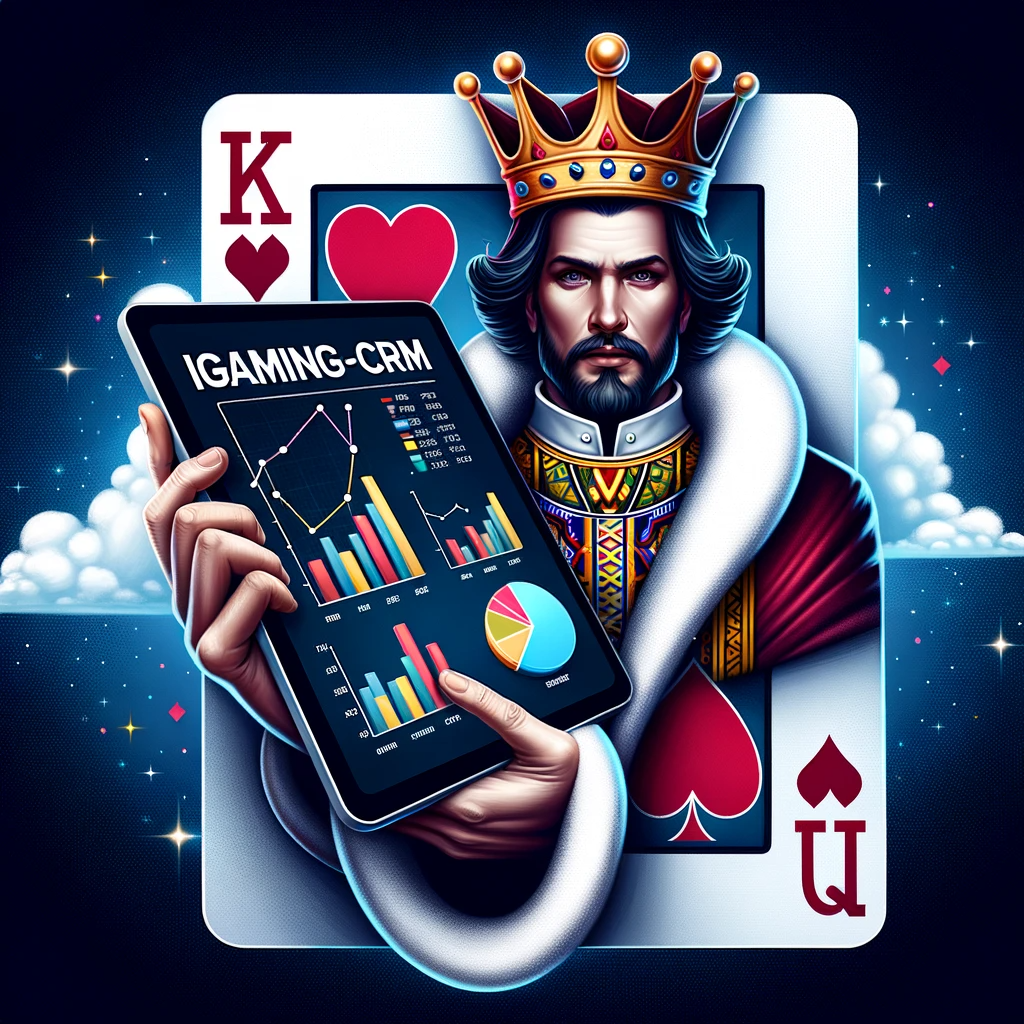10 Ways AI is Revolutionizing Personalized Player Experiences in iGaming

Remember when the iGaming industry was all about chance and simple fun? Well, those times are long gone. The landscape is rapidly transforming, now driven by deep data insights, hyper-personalization, and machine intelligence. Today’s online players have high standards: they don’t just want a great game. They expect the platform to feel like it was made just for them. That’s precisely where AI steps up in iGaming. Ai in iGaming is about fundamentally reshaping the player’s relationship with the online casino.
From one-of-a-kind player experiences to sophisticated AI-driven CRM software, machine learning is the essential foundation for boosting engagement and locking in loyalty.
In this article, let’s explore the ten powerful ways AI is defining the future of online gaming.
1. Real-Time Player Personalization
AI allows gaming platforms to adapt instantly to each player’s behavior.
Instead of relying on static profiles, machine learning gaming systems process live data like in-game actions, playtime, and preferences to adjust recommendations in real time.
Whether it’s suggesting the next slot game, tailoring rewards, or adjusting difficulty levels, AI ensures every player feels seen and understood. This level of personalization boosts engagement and dramatically increases casino player retention.
2. Smart Segmentation Through Data Analytics
Traditional segmentation divides players by demographics. AI segmentation goes deeper as it identifies behavioral patterns and emotional triggers.
Using gaming data analytics, AI clusters players into micro-segments like risk-takers, casual players, VIPs, or trend-driven gamers.
These insights help AI-driven CRM tools design more accurate campaigns. The result? Personalized promotions that feel intuitive, not intrusive.
3. Predictive Player Retention
AI can now forecast when a player might churn. Machine learning models identify subtle pre-churn indicators like a slight drop in average bet size, decreased session frequency, or a shift to less preferred games. The model scores each player’s likelihood to churn.
CRM teams can execute targeted win-back campaigns that are personalized not just by the offer, but by the predicted timing, ensuring the intervention hits the player just as they are beginning to disengage.
4. Emotionally Intelligent Game Design
AI doesn’t just track actions, it interprets emotions. Through behavioral biometrics and player data patterns, gaming systems can infer how players feel frustrated, excited, or bored.
Game designers use this machine learning gaming data to balance difficulty levels or trigger excitement at key moments. Imagine a game that knows when you’re losing interest—and shifts to re-capture your attention. That’s the emotional intelligence driving next-generation personalized player experiences.
Also See: How CRM Solutions for iGaming Can Boost Your Business
5. Adaptive Loyalty Programs’

Static loyalty tiers are becoming outdated. AI-powered iGaming CRM software creates adaptive loyalty systems that evolve with the player. Instead of one-size-fits-all rewards, AI tracks engagement and predicts what type of incentive drives motivation.
For example, some players might respond better to time-based bonuses, while others prefer exclusive access or VIP points. With AI in iGaming, loyalty becomes fluid and customized to each player’s journey rather than fixed in stone.
6. Better Fraud Detection and Fair Play
Behind the fun and competition lies a serious challenge: fairness and fraud prevention.
AI-powered CRM innovation tools use predictive algorithms to detect unusual behavior like bot patterns, collusion, or account sharing.
By constantly monitoring data streams, AI ensures integrity across platforms, protecting both players and operators. This real-time oversight also helps maintain trust, a crucial part of long-term casino player retention.
7. Intelligent Player Journey Mapping
Understanding a player’s path through the platform is essential for engagement.
AI builds detailed player journey mapping models, tracking how users move from registration to long-term loyalty. It analyzes where players drop off, what keeps them returning, and how they transition between games.
These insights allow AI-driven CRM systems to refine onboarding, promotions, and reactivation flows with pinpoint precision. Now, this results in seamless, rewarding journeys that feel natural rather than marketed.
8. Voice and Chat Personalization
Voice assistants and chatbots are evolving into smart gaming companions. AI-powered chat interfaces can remember player preferences, recommend games, and even engage in personalized conversations based on sentiment detection.
These virtual assistants are trained using AI gaming insights, allowing them to provide meaningful interaction beyond scripted replies. In the future, players might experience voice-driven iGaming, where natural conversation replaces menus creating a more immersive, human-like experience.
9. Predictive Game Recommendations

AI doesn’t just personalize, it predicts.By analyzing millions of gameplay sessions, AI can identify hidden relationships between players and games.
For example, if a player enjoys certain graphics, music styles, or mechanics, machine learning gaming algorithms can predict which new releases they’ll enjoy most. This Netflix-style recommendation system improves player engagement while increasing playtime and conversion rates.
10. Data-Driven Game Design and Innovation
AI is transforming how games are made.
Developers now rely on gaming data analytics to identify what elements drive success like visuals, reward frequency, or story structure.
AI then models these data points to help teams create better-balanced games tailored to audience behavior.
This feedback loop—data → design → testing → refinement—creates experiences that feel intuitively crafted for every player segment.
The result is an industry where AI and human creativity work together to build emotionally resonant and engaging worlds.
The Impact of AI-Driven Personalization in iGaming
The ripple effects of AI in iGaming go beyond entertainment. It’s redefining customer relationships, platform loyalty, and profitability.
Here’s what AI-powered personalization achieves:
Higher player retention: Players stay longer when the experience feels relevant.
Increased lifetime value: Personalized offers improve spending behavior.
Efficient marketing: Predictive targeting minimizes wasted campaigns.
Better user satisfaction: Seamless, adaptive experiences feel effortless.
Future of AI-Driven iGaming CRM Systems
As technology evolves, expect AI-driven CRM platforms to become even more autonomous.
We’ll see deeper integrations with biometrics, AR/VR, and blockchain identity systems to verify users and adapt experiences dynamically.
Next-gen innovations will include:
- Emotion recognition that adapts game environments in real time
- Fully automated retention systems powered by predictive AI
- Cross-platform personalization that follows a player from mobile to desktop
- Ethical AI frameworks ensuring data privacy and fair play
AI isn’t replacing human creativity. It’s amplifying it. In the iGaming world, the next big leap will be emotional precision, not just data precision.
FAQ: AI in iGaming
How does AI personalize player experiences in iGaming?
AI analyzes user behavior, preferences, and emotional cues to tailor games, rewards, and recommendations in real time.
What is an AI-driven CRM in iGaming?
It’s a customer relationship management system that uses AI to automate segmentation, retention campaigns, and player engagement strategies.
How does predictive analytics improve casino player retention?
It identifies when players are likely to churn and triggers personalized re-engagement actions before they leave.
Are AI gaming tools replacing human managers?
Not entirely. They assist marketing and design teams by handling repetitive data tasks, leaving humans to focus on creativity and strategy.
What’s next for AI in iGaming?
Expect stronger emotional AI, smarter loyalty programs, and integrated voice-driven interactions that reshape digital gaming experiences.
Conclusion
We’re standing at a critical juncture in the iGaming industry, where cold, hard data collides with the emotional thrill of the game. The good news? AI is the perfect bridge. We’re already seeing this shift: artificial intelligence is fundamentally changing how casinos earn and keep customer loyalty, whether through predictive engagement models or smart, hyper-personalized CRM.
The clear path forward is for platforms to leverage machine learning insights not just to draw a crowd, but to genuinely understand the individuals in that crowd. In short, AI isn’t just an intelligence boost for gaming. It’s the key to making the experience truly feel like it was crafted just for you.
